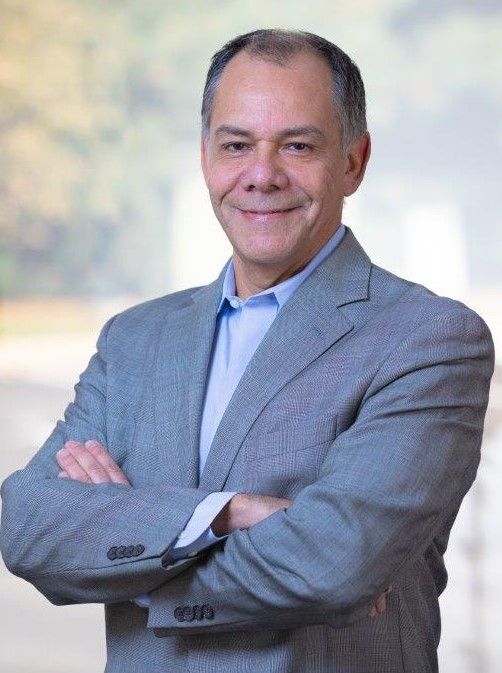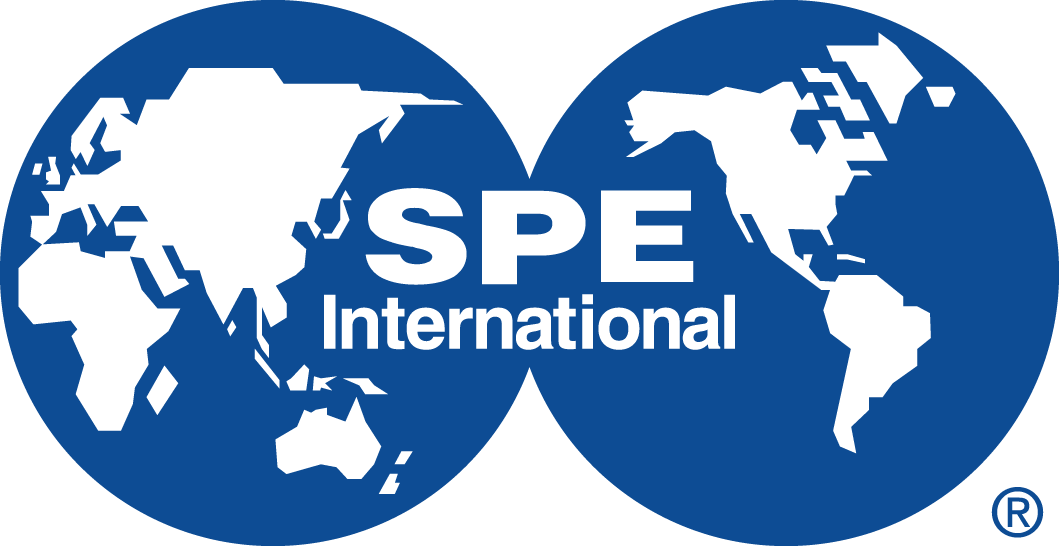-
Madero-Carranza60 mins
-
Hidalgo Ballroom10 minsGeorge K. Wong, University of Houston
-
Hidalgo Ballroom30 mins
Claudio Furtado, Water Management Sr Consultant, Petrobras

Claudio Furtado is a chemical engineer with a master's degree in chemical engineering and a specialization in petrochemical processes and petroleum engineering. He worked at the Brazilian Geological Survey and for the past 25 years has worked in Water Management in E&P at Petrobras. He is currently a senior consultant in this area in the corporate reservoir area. He has been a volunteer for SPE in organizing several events over the past 15 years.
-
Hidalgo Ballroom90 mins
This session will focus on injectivity issues. Field cases will be presented that provide insight into how different design factors such as well design (cased-hole vs open-hole, horizontal vs vertical) and operational philosophy (matrix vs fractured injection) can impact well injectivity.
Different techniques for the assessment of injector performance evaluation will be discussed. The objective of the session is to aid operators in making decisions related to well completion design and operating practices to ensure sustained well injectivity.
Session chairpersons: Mukul Sharma, University of Texas at Austin; Dan Worrall, Oxy
Speakers:
- Influence of Seawater versus Produced Water on Injectivity and Oil Recovery in a Brownfield Viscous Oil Development
Vanessa Bergstedt, ConocoPhillips - Successful Application of Intelligent Completions in a Deepwater Gulf of Mexico Water Injector
Kristi Webb, Namrita Gandhi , Oxy - Deepwater Tornado Dumpflood Well Design and Operational Philosophy
Bilal Hakim, Talos
- Influence of Seawater versus Produced Water on Injectivity and Oil Recovery in a Brownfield Viscous Oil Development
-
Foyer - Hidalgo Ballroom30 mins
-
Hidalgo Ballroom80 mins
This session will focus on injectivity issues. Field cases will be presented that provide insight into how different design factors such as well design (cased-hole vs open-hole, horizontal vs vertical) and operational philosophy (matrix vs fractured injection) can impact well injectivity. Different techniques for the assessment of injector performance evaluation will be discussed. The objective of the session is to aid operators in making decisions related to well completion design and operating practices to ensure sustained well injectivity.
Session chairpersons: Bulent Izgec, Hess; Feng Liang, Woodside
Speakers:
- Design of Sand Control in DW Injectors
Karim Zaki, Chevron - Polymer Injection Fracture Length: Integrating Models, Uncertainty, and Field Insights
Ruqaiya Zadjali, Petroleum Development Oman
- Design of Sand Control in DW Injectors
-
Madero-Carranza90 mins
-
Hidalgo Ballroom90 mins
Poor vertical or areal conformance for water injection wells can lead to various problems with the offset producing wells as well as the effectiveness of an entire waterflood operation. This session will look at completion techniques employed to either control the injection profile or to allow accurate placement of treating chemicals.
Session Chairpersons: Per Einar Svela, Equinor; Steven R. Fipke, Halliburton
Speakers:
- Experience with Using Screens Fitted with Multiple Non-return Valves Distributed Under the Screen Element
Michael Konopczynski, TAQA - Coupled Modeling Workflows Show The Value of Electro-Hydraulic Smartwell in Multizone Water Injection Wells
Clifford Allen, Halliburton - Distinct Injection Log Profile Due to Void in the Gravel Packed Annulus
Øystein Brandal, Equinor
- Experience with Using Screens Fitted with Multiple Non-return Valves Distributed Under the Screen Element
-
Foyer - Hidalgo Ballroom30 mins
-
Hidalgo Ballroom90 mins
Poor vertical or areal conformance for water injection wells can lead to various problems with the offset producing wells as well as the effectiveness of an entire waterflood operation. This session will look at completion techniques employed to either control the injection profile or to allow accurate placement of treating chemicals.
Session Chairperson: Indra Gunawan, ConocoPhillips; Balkrishna (Bala) Gadiyar, SLB
Speakers:
- Improving Injection Conformance and Containment Using Fluid Control Devices (FCDs): Outflow Control Devices (OCDs); FloFuse; and Autonomous Outflow Control Devices (AOCDs); FloExtreme
Morteza Akbari, TAQA - Application of Washpipe Jetting Tool for Filtercake Cleanup in Hz OHSAS Injectors
Ying Zhang, Shell - FPSO-deployed Deepwater Injector Remediation Concept
Brian O'Donnell, ExxonMobil
- Improving Injection Conformance and Containment Using Fluid Control Devices (FCDs): Outflow Control Devices (OCDs); FloFuse; and Autonomous Outflow Control Devices (AOCDs); FloExtreme
-
Olivares60 mins
-
Madero-Carranza60 mins
-
Hidalgo Ballroom90 mins
Injection of produced water for pressure support or disposal has always been challenging, in view of water quality and its potential negative effects. Achieving optimum and sustained injectivity throughout life-of well in a cost-effective manner are key objectives. This session addresses various efforts that have been implemented (successfully or not) in an attempt to achieve this desired objective. Discussions will center on fields results that may include process changes, new procedures, pilot tests, analyses, simulation and/or modelling. Furthermore, PWRI wells’ Injectivity restoration procedures and processes through stimulation will be addressed in this session.
Session Chairpersons: Per Einar Svela, Equinor; Max Baumert, ExxonMobil
Speakers:
- High Rate PWRI at Johan Sverdrup - When Injectors Fight Back
Liv Omdal, Equinor - Produced Water Injection Management in a Mature Waterflood – More Throughput is Not Always More Oil
Cody Keith, Jenny Sutton, ConocoPhillips - Mechanical Well Stimulation: Experience with Geomechanical Pulse
Emilio Paulo, Petrobras
- High Rate PWRI at Johan Sverdrup - When Injectors Fight Back
-
Foyer - Hidalgo Ballroom30 mins
-
Hidalgo Ballroom90 mins
Whatever the model used to understand, model, and predict the injectivity of water injectors, its validation is always difficult because it is confronted with the lack of real field data such as pressures, temperatures, water quality, flow rate, flow conformance, for example. This is often true for deep water wells because each intervention to carry out a PLT or a simple thermometry to determine the flow conformance, could be long and expensive. One way to validate these models is to carry out laboratory tests under controlled conditions and different scales (centimetric to metric under stress or not) and under various injection regimes (matrix and/or frac). This is particularly interesting when dealing with unconsolidated reservoirs, which in addition to the validation of the models, original tests carried out in the laboratory should allow understanding of their behavior particularly in terms of frac and improving the physics implemented in the models which is still unknown. This session is dedicated to present and discuss this type of lab work and modelling approaches.
Session Chairpersons: Claudio Furtado, Petrobras; George K. Wong, University of Houston
Speakers:
- Injectivity in PWRI Projects: From the Lab to the Field Scale
Adriano Santos, The Federal University of Rio Grande do Norte (UFRN) - Laboratory Experiments and Field Tests for Damage Remediation During Produced Water Reinjection
Claudio Furtado, Petrobras - Predicting Filtration Coefficient and Damage Factor for Particle Flow in Porous Media using Machine Learning
George K. Wong, University of Houston
- Injectivity in PWRI Projects: From the Lab to the Field Scale
-
Madero-Carranza45 mins
-
Hidalgo Ballroom30 mins

Carlos Tapia
Director, Integrated Energy
Independent Project Analysis, IncCarlos is Director of IPA’s Integrated Energy Practice. In this role, he leads IPA’s energy business initiatives by helping integrated energy companies, national oil companies, and independent operators deliver competitive capital project opportunities. His responsibilities include providing global energy business leaders with unbiased facts, data analytics, and research-based advice to deliver sustainable returns on both traditional and alternative energy projects (e.g., lower carbon technologies; carbon capture, utilization, and storage [CCUS]; renewables; etc.).
-
Hidalgo Ballroom15 mins
-
Hidalgo Ballroom90 mins
This session focuses on the best practices for optimizing injector well performance. Topics related to optimum drilling and completion program, ability to inject above fracture pressure, injection system availability with high water quality together with surveillance and analysis-driven ramp-ups to target injection rates are covered.
Session Chairpersons: Feng Liang, Woodside, Bulent Izgec, HESS
Speakers:
- Fiber Optic Surveillance (DAS, DTS and DSS) of Fracturing and Fluid Circulation in a Geothermal Injector - Producer Well Pair
Mukul Sharma, The University of Texas at Austin - Managing Water Injection in a Deepwater GOA Compartmentalised Oil Asset
Debbie Gana, Woodside - Surveillance of Matrix Injection with OHSAS Horizontal Injectors
Duane Mikulencak, Shell
- Fiber Optic Surveillance (DAS, DTS and DSS) of Fracturing and Fluid Circulation in a Geothermal Injector - Producer Well Pair
-
Foyer - Hidalgo Ballroom30 mins
-
Hidalgo Ballroom90 mins
Ensuring injection operations for pressure maintenance or waste disposal remain within the target injection domain has important implications: economically by providing better sweep efficiency leading to less injectors, operationally through the ability to inject safely, and reducing environmental impact providing support on license to operate. Injection geomechanics provides insights into injector performance and injectivity, which depends on effective stress affecting rock deformations and fluid flows around the wellbore region and in the reservoir. This helps us improve completion design, predict fracture extension over time, prevent injector failures, and deliver safer operating guidelines for fluid containment. Methods to ensure containment, surveillance to track and verify containment as well as cases where containment is/was challenging, will be presented.
Session Chairpersons: Duane Mikulencak, Shell; Amr El-Fayoumi, Chevron
Speakers:
- Crane County Brine Release Causality Analysis
B. Max Baumert, ExxonMobil - Induced Sanding Due to Crossflow Impact on Injectors
Karim Zaki, Chevron - Anticipating Monitoring for and Responding to Out-of-Zone Injection in a Multi-Zone, Highly Faulted Clastic Light Oil Reservoir
Kevin Wiggs, ConocoPhillips
- Crane County Brine Release Causality Analysis
-
Madero-Carranza60 mins
-
Hidalgo Ballroom90 mins
Water injection and its effectiveness has a substantial impact on project economics. This session will discuss recently developed and emerging technologies applied to enhance water injection efficiency.
Session Chairpersons: Indra Gunawan, ConocoPhillips; Balkrishna (Bala) Gadiyar, SLB
Speakers:
- New and Improved Tracer Methodologies to Quantify Water Flow in Wells and Reservoirs
Sven Kristian Hartvig, Resman - Fiber Optics Technology for Monitoring of Injection Profiles
Mikhail Kaznacheev, SLB - Models and Experiments for Estimating Injectivity Decline in Frac-Packed and Gravel Packed Injection Wells
Mukul Sharma, University of Texas at Austin
- New and Improved Tracer Methodologies to Quantify Water Flow in Wells and Reservoirs
-
Foyer - Hidalgo Ballroom30 mins
-
Hidalgo Ballroom60 minsModerators: George K. Wong, University of Houston; Max Baumert, ExxonMobil
-
Hidalgo Ballroom30 mins

